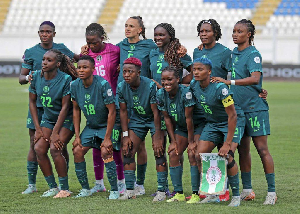In the past 24 years, at least 20 commercial airlines have ceased operations in Nigeria’s aviation industry.
Airlines like HAK Air, which acquired five Boeing 737 aircraft, shut down without conducting any flights after receiving their Airline Operator Certificate (AOC) from the Nigerian Civil Aviation Authority (NCAA).
Some managed to operate for about a year. Various factors contributed to the collapse of these airlines, including government policy changes, lack of funds, and accidents, with some shutting down immediately after incidents or a few years later.
Airlines that have disappeared in this period include Nigeria Airways, Albarka Air, Azman Air, Discovery Air, Air Midwest, Okada Air, EAS Airlines, NICON Airways, Med-View Airline, Space World Airlines, First Nation, Hak Air, Slok Air, IRS Airlines, Air Nigeria, Nigerian Eagle, ADC Airlines, Associated Aviation, Chanchangi Airlines, Sosoliso Airlines, Bellview Airlines, and Virgin Nigeria.
Nigeria Airways, the former national carrier, operated from 1958 to 2003 before being shut down by President Olusegun Obasanjo in 2003.
Obasanjo was reportedly dissatisfied with the airline’s condition upon his return to office, stating that when he left the presidency in 1979, the airline had 29 functional aircraft, but two decades later, it was down to just two barely operational planes.
The airline’s closure sparked widespread criticism, particularly because its staff did not receive their terminal benefits until 2009 when President Umaru Yar’Adua paid five years' worth of severance packages with a promise to settle the remaining amount later.
However, it wasn't until December 2018, under President Muhammadu Buhari and then-Aviation Minister Sen. Hadi Sirika, that another 50% of the outstanding severance was paid.
Why airlines are collapsing?
Speaking with Legit.ng Rotimi Akinola, an aviation analyst attributed the collapse of some local airlines to a combination of poor financial management, high operational costs, and inadequate government support.
He said "The volatile cost of aviation fuel, fluctuating exchange rates, and stiff competition make it difficult for airlines to maintain profitability. Also, infrastructure challenges like poorly maintained airports and inefficient air traffic control systems exacerbate operational difficulties.
"Frequent policy changes by the government and lack of access to affordable financing also hinder long-term growth. These factors create a challenging environment for airlines, leading to their collapse after a short period of operation."
Akinola, however, advised the government to save struggling airlines by providing financial support, ensuring stable aviation policies, reducing taxes on aviation fuel, and improving airport infrastructure.
Business News of Thursday, 15 August 2024
Source: www.legit.ng













